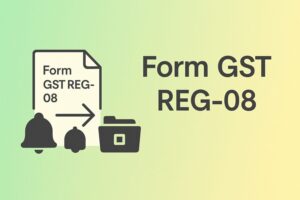GST Input on Car Purchase for Company
- 2 Sep 24
- 8 mins
GST Input on Car Purchase for Company
Key Takeaways
- Variable GST Rates: Vehicle GST rates range from 5% to 28%, depending on factors like fuel type and usage.
- Compensation Cess: Additional cess applies to certain vehicles, increasing the total tax, especially on larger cars.
- Limited ITC: Input Tax Credit (ITC) is generally restricted, with exceptions for business-use vehicles like taxis, goods carriers, and driving school cars.
- Industry Benefits: GST has reduced the overall tax burden on vehicles, improving supply chains and lowering costs.
- Exemptions: Used vehicle traders and specific vehicles, like those for the physically challenged, receive GST exemptions.
Under the GST regime, businesses continually seek ways to optimise input tax credits while abiding by tax regulations. One area that often invites questions is the GST input for cars purchase for companies. Along with reducing the tax burden, ITC has several benefits and it positively impacted the automobile industry in India.
In this blog, we will discuss the specifics of the Input tax Credit under GST, along with its exceptions, impacts on cars and many more.
Handle all your sales and purchase invoices in one place.
Pice’s all-in-one invoice management tool helps you track, send, and organize invoices from a single dashboard. Automatically share new invoices with customers, send timely payment reminders, and keep your collections under control—effortlessly.
Want early access? Fill out this form to get request a demo!
GST Rate on Cars
The applicable GST rate on cars for personal use ranges between 5% and 12%. The tax rate is levied not only on the motor cars, vehicles or bicycles but also on the parts. Let us discuss the division of GST rates on cars in detail:
Instances of vehicles where the applicable rate of GST is 5%:
- Motorised and non-motorised carriages
- Accessories and replacement parts of the above-mentioned carriages
Instances of vehicles where the applicable rate of GST is 12%:
- Cars driven by fuel cells like hydrogen fuel cell technology
- Hand-driven and animal-driven vehicles like rickshaws, and bullock carts
- Cars that are driven by electric motors. This includes two and three-wheelers as well.
Instances of vehicles where the applicable rate of GST is 18%:
- Vehicles that are used by physically challenged people
- Perambulators and its replacement parts
Instances of vehicles where the applicable rate of GST is 28%:
- Moped bikes or motorcycles (with or without sidecars)
- Accessories and replacement parts of moped bikes, inclusive of the sidecars
- Motor vehicles driven by petrol or diesel for transportation of people and racing cars
GST Rate Based on Fuel Type
The GST rate on cars also depends on the engine capacity tax rate. Let us take a look at the table below to understand the rates better:
| Type of Vehicles | Capacity of the fuel tank | Pre-GST rate | Post-GST Rate |
| A vehicle driven by petrol | below 1.2 Litre | 31.6% | 28% |
| Vehicles driven by diesel | More than 1.5 Litre | 34.25% | 32% |
| Vehicles are driven by both Petrol-diesel | Petrol over 1.2 L and Diesel over 1.5Litre | 45.7% | 44% |
| Bigger than a 4-metre vehicle driven by both petrol-diesel | Any type | 56% | 44% |
| Electric vehicles | NIL | 21.5% | 13% |
Compensation Cess in GST Act
A type of charge that is applicable only on certain goods in addition to the required GST rate is known as a compensation cess. It is introduced to compensate the manufacturer or the producer states for the probable loss of revenues. The goods when you can levy compensation cess are:
- Aerated water
- Different types of fuel such as ovoids, coal, etc.
- Motor vehicles
However, it is important to remember that under the current GST provisions, compensation is not levied on goods that other countries export from India. Taxpayers who have composition scheme registration also do not have the liability to pay compensation cess.
Cess Applicable on Cars
Here is a table where the GST rate on automobiles has been mentioned along with the application compensation cess:
| Type of Vehicle | GST Rate | Compensation Cess | Total Tax |
| Petrol/CNG/LPG vehicle less than 1200cc and less than 4 metres in length | 28% | 1% | 29% |
| Petrol/CNG/LPG car less than 1200cc and more than 4 metres in length | 28% | 15% | 43% |
| Petrol/CNG/LPG car over 1200cc | 28% | 22% | 50% |
| Diesel cars less than 1500cc and length of less than 4 metres | 28% | 3% | 31% |
| Diesel cars less than 1500cc and length that is more than 4 metres | 28% | 20% | 48% |
| Diesel cars with over 1500cc engine capacity, bigger than 4 metres in length, ground clearance of at least 170mm | 28% | 22% | 50% |
| Electric Cars | 12% | Nil | 12% |
| Vehicles used as an ambulance | 28% | Nil | 28% |
| Three-wheeler motorised automobiles | 28% | Nil | 28% |
| Fuel Cell Vehicles | 12% | Nil | 12% |
| Mopeds with engine capacity of a maximum 350cc | 28% | Nil | 28% |
| Motorcycles with engine capacity of more than 350cc | 28% | 3% | 31% |
Impact of GST on Vehicle Industry

The Goods and Services Tax has managed to create a positive impact on the vehicle industry of India. Let us see how:
- Indirect taxes like excise taxes and VAT were a combined rate of 26.50% to 44% on the sale of automobiles or transfer of vehicles, which was comparatively higher than the GST rate of 18% to 28%. The current rates of taxation are comparatively lower. Hence, there has been a reduction in tax burden since the implementation of GST.
- GST has enhanced the supply chain mechanism which led to cheaper cost of vehicles and replacement parts. In addition, Integrated Goods and Services Tax (IGST) covers the payment of excise on stock transfers.
Exemptions to Implication of GST on Cars
The exemption of the rates of Goods and Services Tax on cars:
- Traders who deal with used vehicles are required to pay the difference between the amount of buying price and selling price. This helps to eliminate the double taxation system.
- In case the margin comes down to zero, then there is no need for the dealer to make the payment. Additionally, if you purchase used cars from dealers who are not registered then you are exempted from paying GST by the government.
- For vehicles of physically challenged people, the rate of GST is Nil.
Cases Where ITC on Motor Vehicle Is Not Available
According to the general rule, you are ineligible to claim credit of input tax in case the concerned motor vehicle has a seating capacity of 13 or less, including the driver seat. It includes vehicles mostly driven for business purposes.
| Content StrategyTop Priority PagesBlog Publishing ChecklistDaily Publishing ReportKeyword Universe & ClusteringTopics For KWRSYNC With GSC Data Last 28 daysGST Search KWRsPICE_DWS CONTENT CALENDAR 2025-2026 |
Can We Claim GST on Car or Motor Vehicles?
There are conditions where you can claim to input tax credits on particular motor vehicles. These are exceptions to the general rule (as discussed above):
- Cars for Transportation of Passengers: You can claim ITC on cars that are used for transportation of passengers having a seating capacity of 13 or more including the driver. They should be business motor vehicles. For instance, purchasing a vehicle and using it as Ola/Uber or running any kind of cab business.
- Cars for Transportation of Goods: You can claim the input tax credit on cars that are used for the transportation of goods. For instance, tempos, trucks or any goods carriers.
- Automobiles Used for Driving Training: Businesses can claim ITC on vehicles that they use for imparting training on driving. These vehicles are mainly a part of driving school which are used for business purposes and to provide driving lessons to learners.
- Vehicles to Supply Other Vehicles: You can claim input tax credit on the purchase of vehicles intended to run a business that supplies other vehicles. For instance, car dealership business. In this case, the seating capacity of the vehicle does not hold any significance.
Conclusion
The claimant of ITC on motor vehicles is subject to not only certain conditions but also limitations. You are not eligible to claim ITC if the vehicles are not used for business purposes like the transportation of passengers, goods, or the supply of some other vehicle.
Hence, you must be aware of all the provisions of GST input on car purchases for company to ensure GST compliance and enjoy tax benefits.
💡If you want to pay your GST with Credit Card, then download Pice Business Payment App. Pice is the one stop app for paying all your business expenses.
 By
By 
















